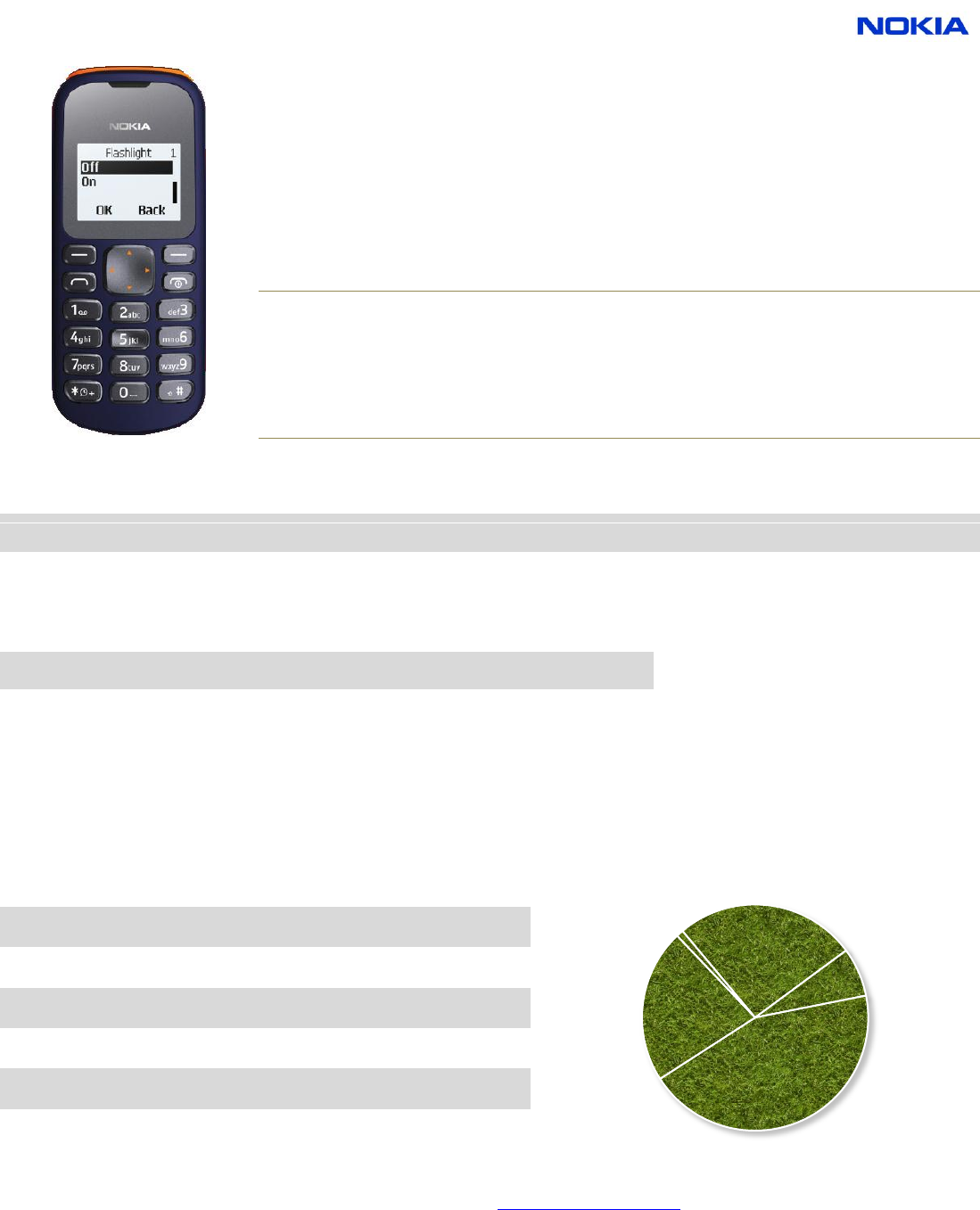
12.04.2012
Sales package content and product features might vary depending on region and product variant.
Copyright © 2011. All rights reserved. Nokia is a registered trademark of Nokia Corporation.
Nokia 103
Eco profile
Product:
Nokia 103
Product type:
Mobile device
Weight:
76.57 grams (including battery)
Dimensions:
Length: 107.2 mm x Width: 45.1 mm x Height: 15.3 mm
Volume:
62.27 cc (cm
3
)
Package:
Weight:
28 grams
Dimensions:
Length: 114.5 mm x Width: 89 mm x Height: 54 mm
Volume:
550 cc (cm
3
)
Material:
Corrugated board
Environmental features
MATERIALS AND SUBSTANCES:
PACKAGING:
RECYCLING:
Free of PVC, free of nickel on the product
surface, free of brominated & chlorinated
compounds and free of antimony trioxide
as defined in Nokia Substance List
Made of renewable material, Contains up
to 60% recycled material, Packaging is 100
% recyclable, Minimized package
All materials of the device can be
recovered as materials and energy
USER GUIDE:
ENERGY EFFICIENCY:
Black & white printing, Green tips page
Unplug charger reminder
Materials used
Through careful material selection we aim to reduce the environmental impact of our products. The chart below shows the estimated
proportions of the materials used to create this mobile device.
Metals:
E.g. stainless steel, copper, zinc, aluminium.
Nokia’s products contain ~0.1-0.2% precious metals.
Ceramic materials:
Glass, other ceramics.
Plastics:
E.g. ABS/PC, PET, PA, epoxy.
Battery:
E.g. lithium cobalt compound, graphite, aluminium,
copper.
Other:
Non-metals such as silicon. Other materials such as
glues.
Find out more about the materials used to create Nokia products at www.nokia.com/materials
Metals
26%
Ceramic
materials
7%
Plastics
44%
Battery
22%
Other
1%





